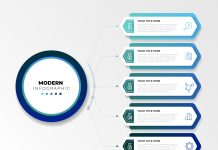Effective data management is crucial in B2B commerce, as it can significantly impact business growth and success. A well-managed B2B database helps businesses manage vast amounts of information about potential leads, customers, and market trends. This knowledge can significantly improve business outcomes for professionals like business owners, marketers, and decision-makers.
In this blog post, we will explore what B2B Database Management entails, how it benefits your business, and why an optimized, data-driven approach is essential for modern business growth.
What Is B2B Database Management?
At its core, B2B Database Management refers to the process of collecting, organizing, maintaining, and analyzing data related to businesses, clients, prospects, and markets. This data includes contact details, transactional history, business size, revenue, and more.
Businesses can improve lead generation, develop more precise marketing strategies, and make well-informed business decisions by managing this data efficiently.
A B2B Database is not just a collection of random information but a valuable asset that helps businesses understand their target market better, anticipate their needs, and offer personalized services.
The Importance of B2B Database Managemen
- Improved Lead Generation and Segmentation
An effective B2B Database allows businesses to segment their audience based on various factors such as industry, company size, geographic location, and behavior. This segmentation is critical for targeted marketing campaigns, as it ensures that companies can tailor their messages to specific groups of potential clients, improving conversion rates.
For example, a B2B software provider might have different messaging for small startups compared to large enterprises. With a segmented database, they can deliver more relevant content and offers, which leads to higher engagement and increased sales.
- Better Decision Making Through Data Analytics
Having a well-organized B2B Database enables businesses to derive valuable insights through data analytics. By analyzing patterns in customer behavior, market trends, and purchase history, decision-makers can identify growth opportunities, spot potential risks, and optimize their strategies.
For instance, a company may notice that a particular sector is showing a steady increase in demand for their services. Armed with this information, they can prioritize marketing and sales efforts toward that sector, capitalizing on the opportunity.
- Enhancing Customer Relationship Management (CRM)
A B2B Database can be effectively integrated with Customer Relationship Management (CRM) systems, providing a centralized platform for businesses to store, track, and manage customer interactions.
This enables businesses to nurture relationships with prospects and existing customers, personalize communication, address customer needs more effectively, and foster loyalty by having a complete view of every customer’s interaction history.
- Increased Efficiency and Productivity
With a well-maintained B2B Database, businesses can automate various processes, such as email marketing, lead nurturing, and sales follow-ups. Automation saves time and ensures that no potential lead is missed. A clean and updated database reduces the need for manual data entry and minimizes errors, allowing teams to focus on high-value tasks.
Automation tools can pull data from the B2B Database to create personalized campaigns, schedule follow-ups, and track the effectiveness of outreach efforts. This efficiency results in improved productivity and a higher return on investment (ROI).
- Accurate Targeting and Personalization
In the B2B market, personalization is a must for success. A robust B2B Database allows businesses to gather detailed information about clients and prospects, such as purchase history and interests, to create personalized marketing messages. This data can be used to send tailored content or offers, enhancing the chances of converting leads into customers and boosting the overall business performance.
- Improved Data Quality and Compliance
Maintaining an up-to-date B2B Database is crucial for data accuracy and compliance with regulations like GDPR (General Data Protection Regulation) and CCPA (California Consumer Privacy Act). Poor data quality can lead to ineffective marketing campaigns, wasted resources, and potential legal issues.
Regular data cleansing practices, including removing duplicates, correcting inaccurate information, and updating outdated entries, ensures a reliable database for businesses, improves campaign success rates, and protects brand reputation by avoiding invalid email addresses and irrelevant prospects.
How to Optimize Your B2B Data for Business Growth
- Invest in Data Enrichment Tools
Data enrichment tools enhance the quality and completeness of your B2B Database by adding missing or updated information. These tools can pull data from third-party sources to fill gaps in contact details, firmographics, and behavioral insights, helping your team make better-informed decisions.
- Integrate Your B2B Database with Marketing Automation Software
Integrating your B2B Database with marketing automation platforms ensures seamless data flow between different marketing channels. It allows businesses to track customer interactions, optimize email campaigns, and implement lead scoring systems, helping prioritize high-potential leads for conversion.
- Regularly Clean and Update Your Database
Data decays over time, especially in the B2B world, where businesses frequently undergo changes such as mergers, acquisitions, or employee turnover. Regularly updating your B2B Database ensures that you are targeting the right people with accurate information. This not only improves marketing and sales efforts but also keeps your database compliant with data protection regulations.
- Leverage AI for Predictive Analytics
Artificial intelligence (AI) and machine learning tools can analyze patterns in your B2B Database to predict future behaviors and trends. Businesses can improve their targeting methods and identify potential upsell or cross-sell possibilities by utilizing predictive analytics.
Conclusion
A well-managed B2B Database is crucial for businesses to grow in today’s competitive market. It improves lead generation, customer relationship management, efficiency, and personalization. Data-driven businesses can unlock growth opportunities, improve marketing, and strengthen customer relationships. Leveraging a B2B Database can drive sustainable growth, higher conversions, increased revenue, and long-term success with the right strategies.I hope you find the above content helpful. For more such informative content please visit Techedgedemand.









